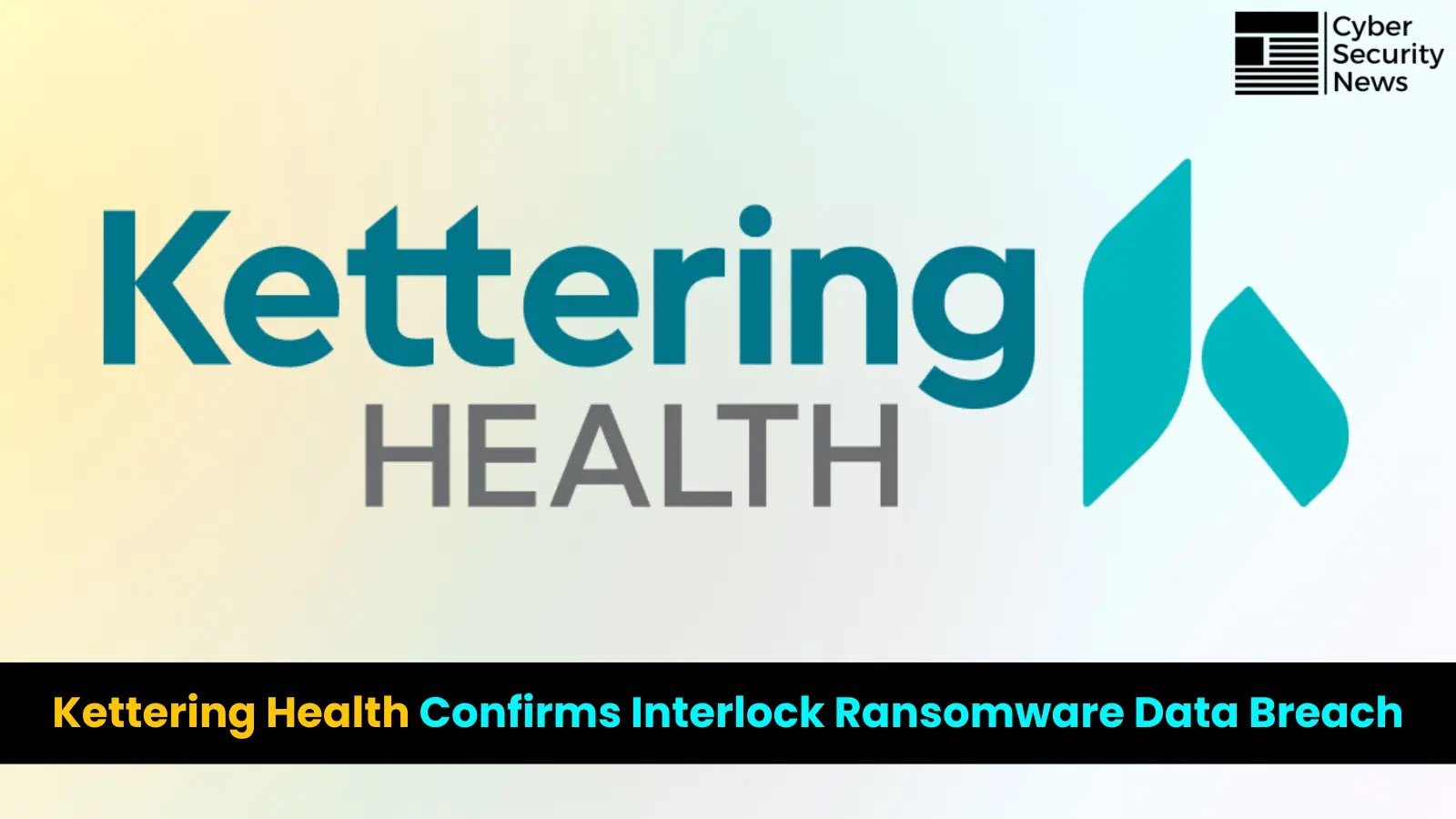[ad_1]
Kettering Health, a prominent healthcare network, has confirmed that its systems were compromised by the notorious Interlock ransomware group on May 20, 2025, in what marks another significant cyberattack targeting critical healthcare infrastructure.
The healthcare provider disclosed the breach in an official statement released on June 5, 2025, outlining comprehensive remediation efforts and ongoing recovery operations following the sophisticated attack.
The cybersecurity incident, which Kettering Health attributes to the Interlock ransomware group, represents a serious breach of the organization’s network perimeter defenses.
Interlock, known for employing advanced persistent threat (APT) techniques and double extortion tactics, likely utilized a combination of phishing campaigns, exploited zero-day vulnerabilities, or compromised remote desktop protocol (RDP) connections to establish an initial foothold within the network infrastructure.
Interlock Ransomware Breach Kettering Health
Upon detection of the malicious activity, Kettering Health initiated its incident response plan, immediately engaging both internal cybersecurity teams and external forensic specialists to contain the threat.
The organization implemented network isolation protocols, effectively air-gapping compromised systems to prevent lateral movement of the ransomware payload across their enterprise environment.
This rapid containment strategy proved crucial in limiting the scope of the attack and preventing further data exfiltration or system encryption.
The healthcare provider’s response included activating their cyber incident command center, coordinating with federal law enforcement agencies, and notifying relevant regulatory bodies, including the Department of Health and Human Services (HHS) and potentially the Cybersecurity and Infrastructure Security Agency (CISA), as required under healthcare data protection regulations.
Following the initial containment phase, Kettering Health embarked on an extensive security remediation process designed to eliminate all traces of the Interlock ransomware infrastructure.
The organization conducted thorough malware analysis, employing advanced endpoint detection and response (EDR) tools to identify and remove all persistence mechanisms, including potential backdoors, rootkits, and command-and-control (C2) communication channels established by the threat actors.
The security enhancement initiative encompassed implementing robust network segmentation using software-defined perimeters (SDP) and zero-trust architecture principles.
These measures create micro-segmented network zones that limit lateral movement opportunities for future attackers.
Additionally, Kettering Health deployed enhanced security information and event management (SIEM) systems with improved behavioral analytics and machine learning algorithms capable of detecting anomalous network traffic patterns and potential indicators of compromise (IOCs).
The vulnerability assessment phase involved comprehensive penetration testing and security audits conducted by third-party cybersecurity firms specializing in healthcare environments.
The organization implemented multi-factor authentication (MFA) across all administrative accounts and deployed privileged access management (PAM) solutions to control and monitor high-risk user activities.
Despite the significant cybersecurity incident, Kettering Health has prioritized maintaining uninterrupted patient care delivery throughout the recovery process.
The organization activated backup systems and manual processes to ensure critical medical services remained operational while primary systems underwent security hardening procedures.
Electronic health record (EHR) systems were gradually brought back online after thorough security validation and integrity verification protocols were completed.
The healthcare network has invested in strengthening its cybersecurity posture through enhanced employee security awareness training programs specifically designed to combat social engineering attacks and phishing campaigns commonly employed by ransomware groups like Interlock.
Moving forward, Kettering Health plans to implement advanced threat hunting capabilities and continuous security monitoring to proactively identify and neutralize potential threats before they can impact critical healthcare operations.
Looking for AI-Powered Nex-Gen malware protection? – Download Malware Protection Plus for Free
[ad_2]
Source link



.png
)